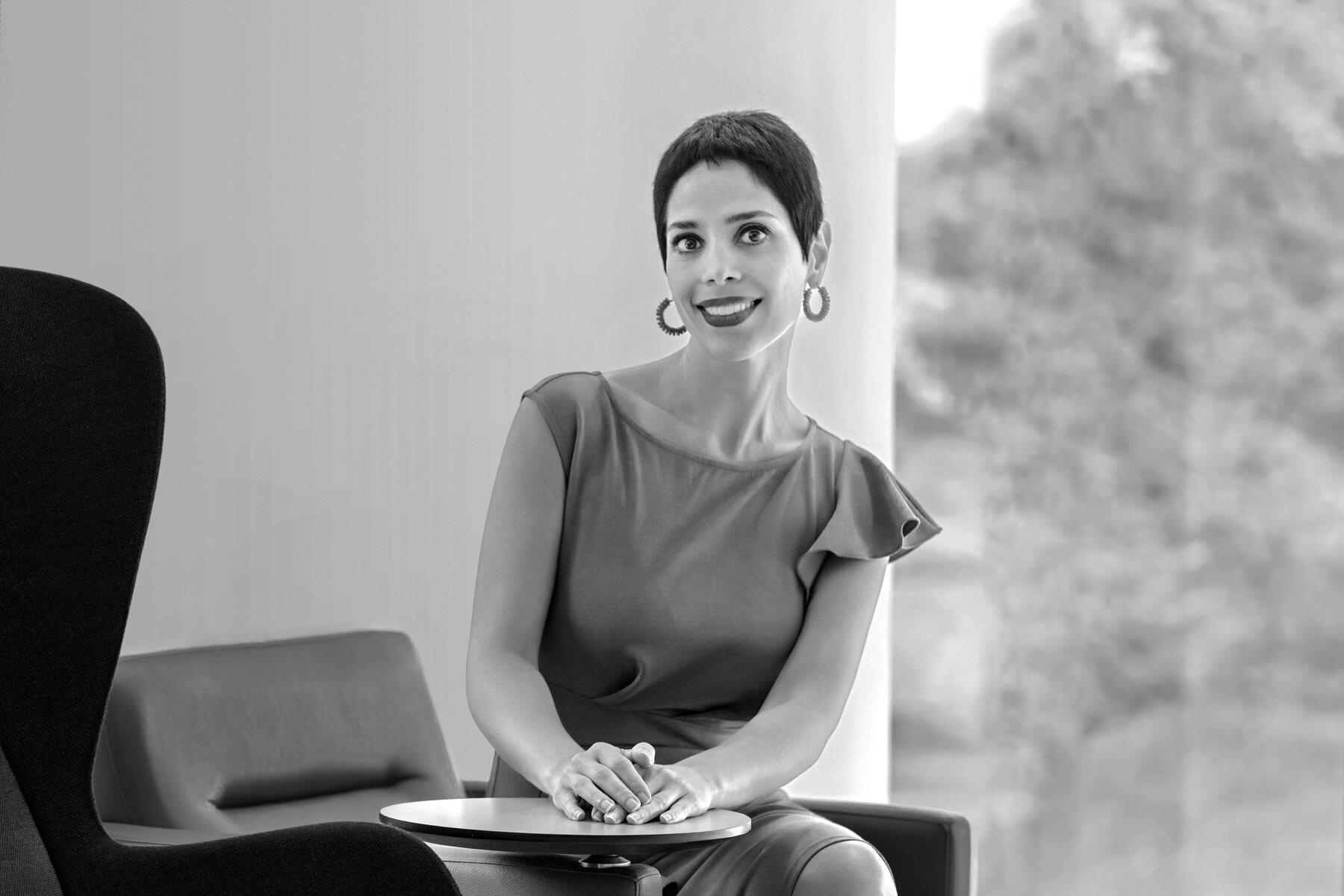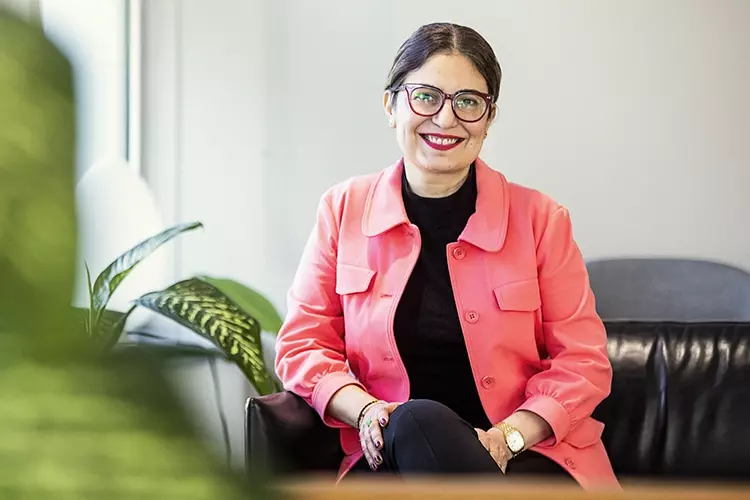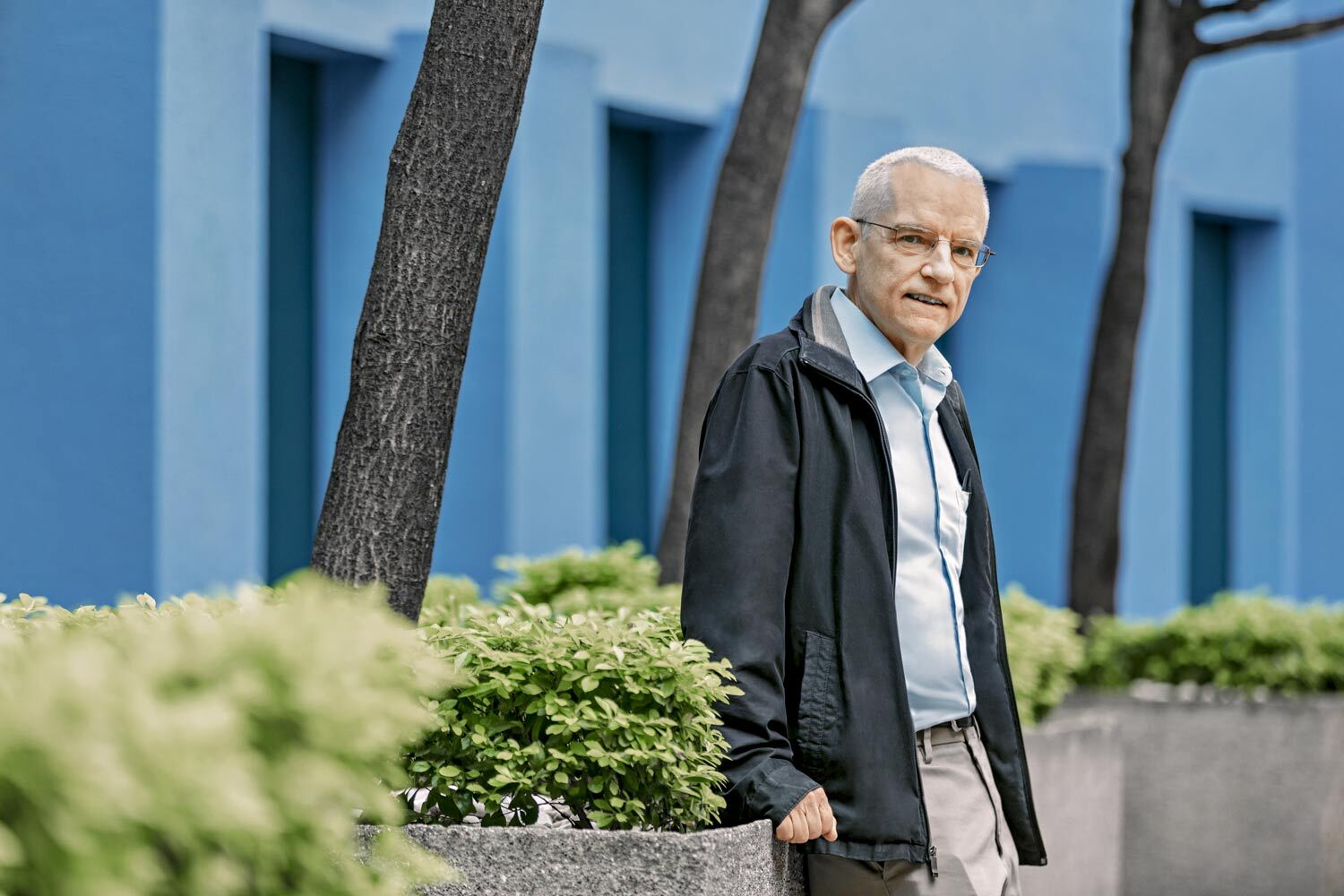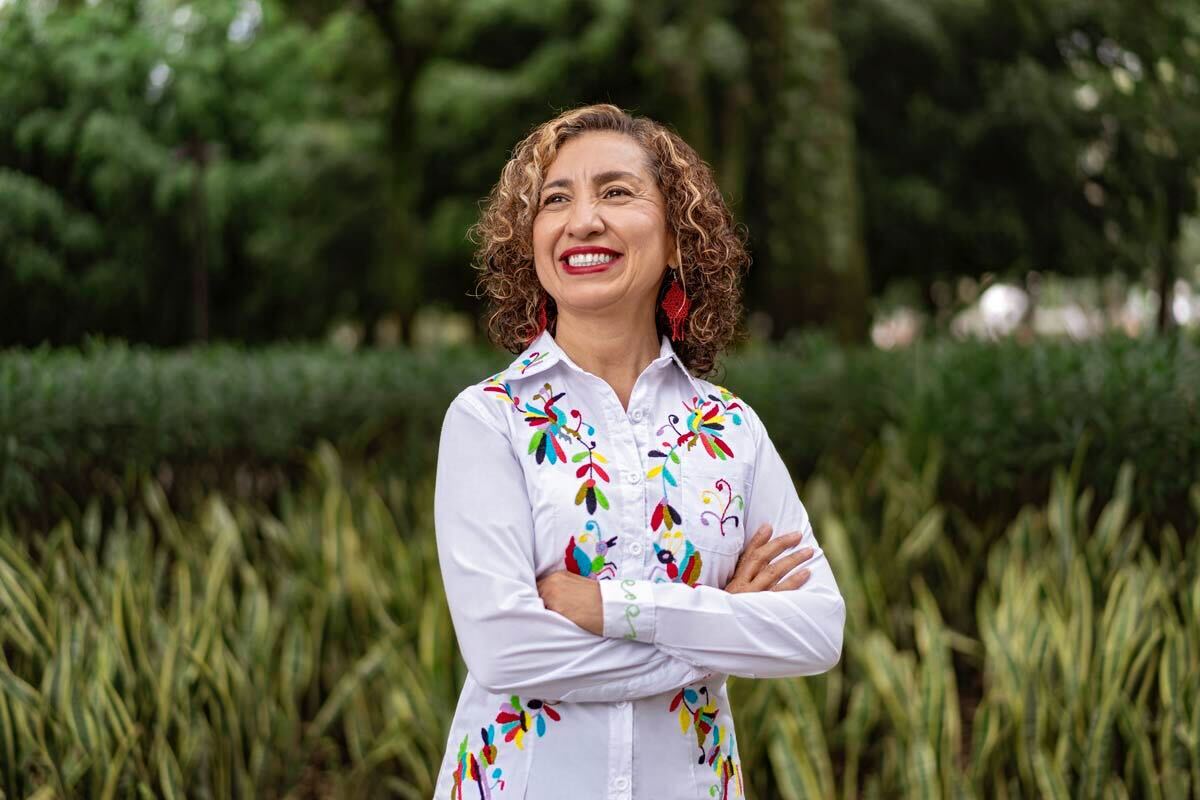Samira Hosseini is convinced that you can only be successful at scientific research if you’re prepared to fail.
Possessing a PhD in Biomedical Engineering, she’s the director of the Writing Lab, a unit within the Institute for the Future of Education (IFE) at Tec de Monterrey that’s dedicated to developing a culture of innovation and research, as well as promoting the academic production of its professors.
Samira, who hails from Iran, comes from a long line of humanistic scientists. Everything she does, she takes it seriously enough to become an expert.
She holds several patents and intellectual property rights, is the author of a book that is one of the most cited in the filed biomedicine, has written storybooks, and is learning about coaching to acquire more tools so she can give better classes for her students because she believes her chief responsibility is to inspire them.
If she could only describe herself in one way, she would say she is a woman with her feet on the ground; her personality is a mixture of composure, presence, friendliness, and authority.
According to a member of her staff, what sets her apart is her ability to straddle two worlds: on one side is her vast experience as a researcher, and on the other are her gifts for leadership and administration, which enable her to motivate a team, coordinate it, and convey her strategic vision.
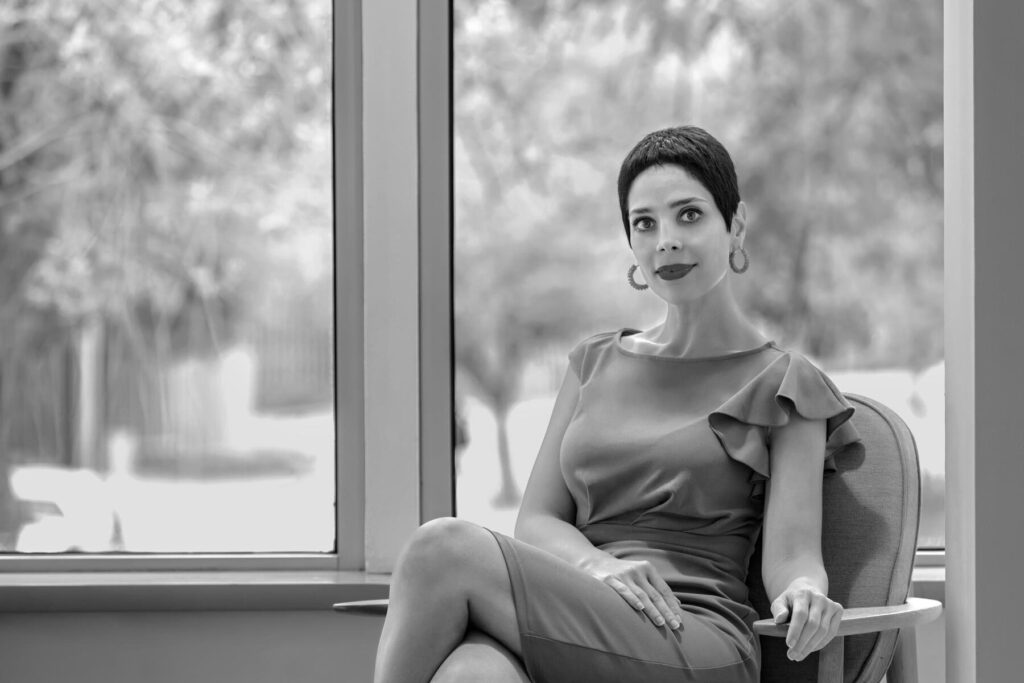
Samira Hosseini: from war to science
When she was girl, one of her pastimes was opening the window to watch missiles streaking through the sky.
Now, 35 years later and thousands of miles from her homeland, Dr. Hosseini reflects on the importance of perseverance over being obsessed with getting positive results, and not taking things personally.
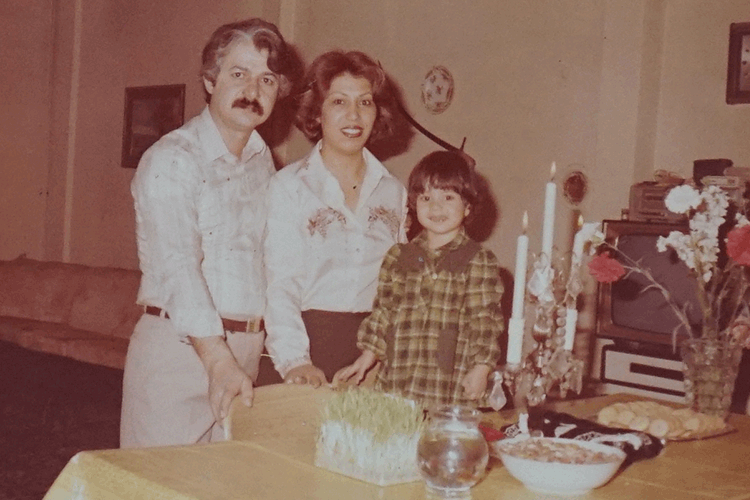
What was it like growing up in Iran in the eighties?
I was born during the period of the Islamic Revolution. In fact, my dad used to say he didn’t want my mom going to demonstrations because she was pregnant, and they would throw teargas at protesters.
He even had to get permission from the police so she could go to the hospital to give birth.
After that, the war against Iraq began, which lasted eight years. As a kid, I didn’t know much about what was going on. We used to play in the ruins of buildings.
I didn’t have my own room. I used to share it with my brother. But, as I was the eldest, I could hang things on the wall. I remember a poster of Modern Talking, a German band I used to like, and another one of the Solar System.
When did you first become interested in science?
Iran has a long tradition of science and has given the world some of its best scientists. Some of them have even changed the course of history, such as Al-Razi (a 9th-century Persian doctor and scientist) or Avicenna (a 10th-century Persian scientist).
My country has always been interested in developing academics, and researchers are well-respected. I think my first encounter with science was learning about my own country’s history.
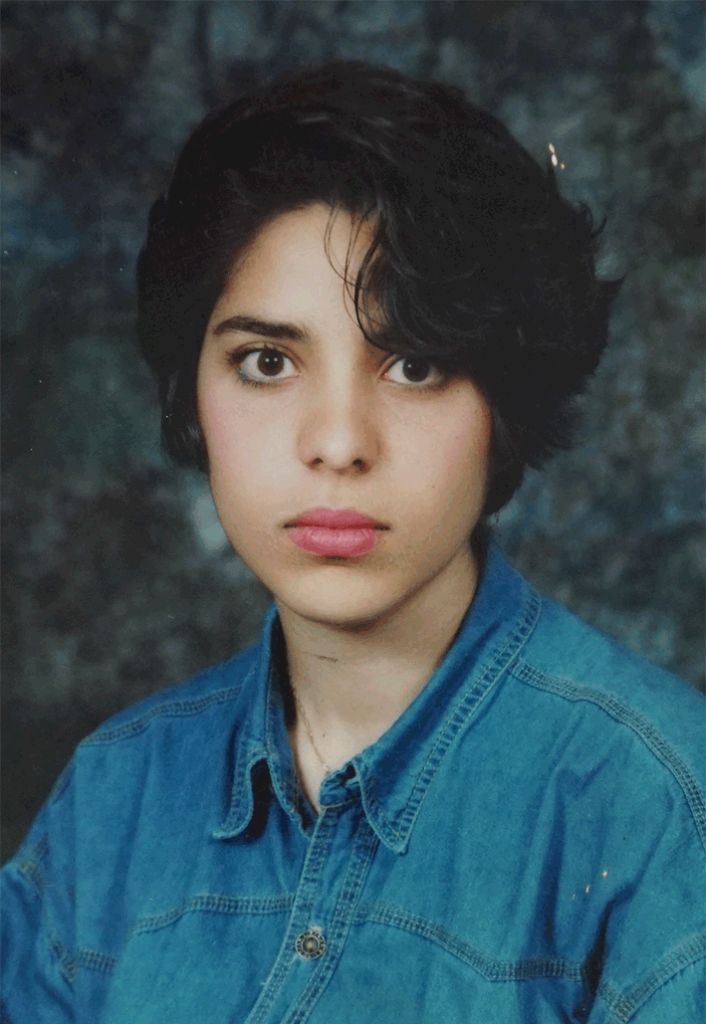
The Writing Lab project
How did you get to the Writing Lab at the Institute for the Future of Education?
I came to Mexico after having been a postdoctoral associate at MIT. The Tec offered me the directorship of the Writing Lab, a position I hadn’t applied for.
I wasn’t convinced at first, because I thought it didn’t have anything to do with me, but one professor made me see how much I knew about education. Long story short: here I am, and I’ve been here for five years.
The Writing Lab name isn’t the best description of what we do. In fact, we train professors to understand what doing research means at a fundamental level and how to translate those results into a publication.
We work with people from medicine, engineering, architecture, and even business, and we teach them all about the process of converting research into a paper.
In the world of science, it’s essential to publish papers, because written production is always the result of solid research. Although something I always emphasize is the importance of also talking about failure.
Researchers always want to show off their achievements and say that everything worked out incredibly, but that’s not the truth. We have to be clear to the scientific community about what didn’t work out well to prevent others from wasting their time replicating it.
Thanks to the Writing Lab initiative at IFE, Tec de Monterrey has become the number one university for educational innovation publications in Q1 and Q2 Journals indexed in SCOPUS. How do you get research published?
There’s always a journal for your paper, but you have to know where to send it. We also have to be realistic. Sometimes, a discovery is modest, or the research isn’t that novel.
Journals have a high standard and it’s also likely that the work has some problems. In the publishing business, it’s important not to take things personally.
A science woman
What would you say are your greatest accomplishments as a scientist?
I hold a couple of patents and six intellectual property rights, two of them in Malaysia and one in Mexico. It’s very gratifying because we prepare the way for others who want to apply what we’ve researched.
What I like about research is that you can see the progression… From talking with friends in the lab and trying to contribute some ideas and attempt to solve the problem, to developing a platform that works on a practical level.
I’m also very proud of my book, ELISA, From A to Z (ELISA is a laboratory technique for detecting antibodies in the blood), and it’s currently the most cited material I’ve ever written.
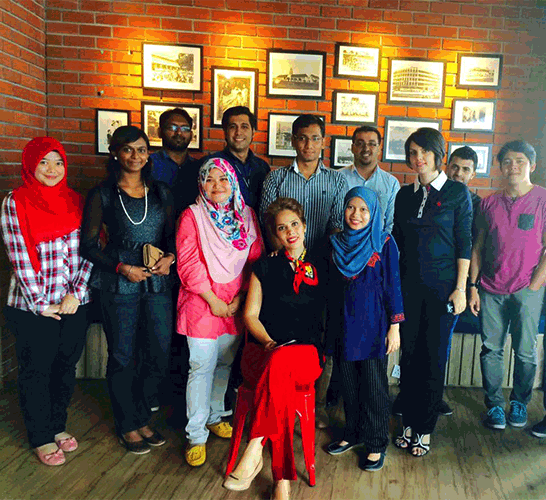
Reviewing your articles and papers, what stands out is that you discuss a large variety of topics, including synthetic polymers, biotechnology, and sex education with video games for teenagers. How did you end up conducting such diverse research?
My background is very diverse. I studied Applied Physics and then Polymer Chemistry, and my doctorate is in Biomedical Engineering. But it’s interesting to know that scientists combine roles at PhD level.
In practice, I’m a biomedical engineer and I develop devices for diagnosing different types of diseases. However, now that I’m in the field of education, in the Writing Lab, a lot of my research is about that topic.
Have you ever felt daunted by your ambitions as a female scientist?
Being a woman in science isn’t easy, but I’ve never seen it as a major obstacle. I’ve always made an effort to achieve my objectives.
Although I never doubt myself, it is an enormous challenge to show the way, to lead as a woman, and demonstrate that you have the same abilities as a man. I sometimes feel that a lot of my energy is devoted to paving the way.
How would you encourage students who want to become scientists?
I’d tell them that the world wouldn’t exist without them. Look at the breakthroughs in medicine, how many years we can live now! What’s more, people have never lived in such comfort.
What would we do without a generation of young people becoming responsible scientists? Because it’s one thing to be a scientist and another to be a scientist with a conscience, those who ask themselves, “What’s the best way to do things? Where’s my integrity? What can I do to help the planet?”
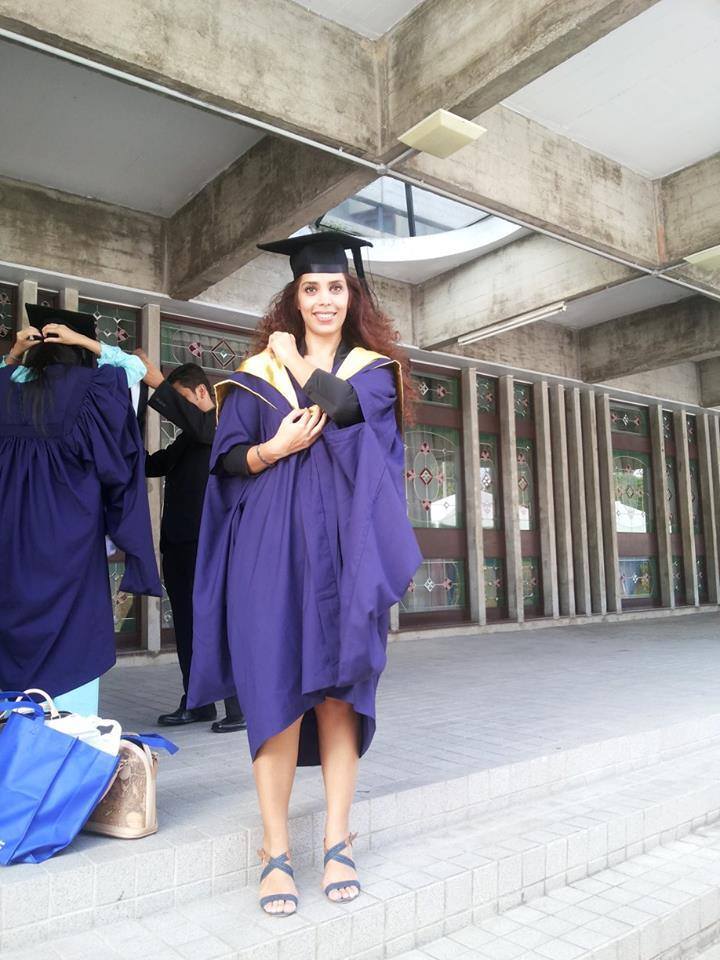
What do you think of Mexico, after having lived here for seven years?
If I told you I’ve bought myself a barbecue grill… I think I can call myself a Monterrey native, can’t I? Mexico is an incredibly beautiful country. I love its artistic wealth, its history, and its color. It’s really beautiful.
I don’t think Monterrey is representative of Mexico, but it’s a great place to work and connect with people. I feel blessed to have friends who’ve become my family pretty quickly. They’ve been very important in helping me fit in here. I really enjoy my life in Mexico.
